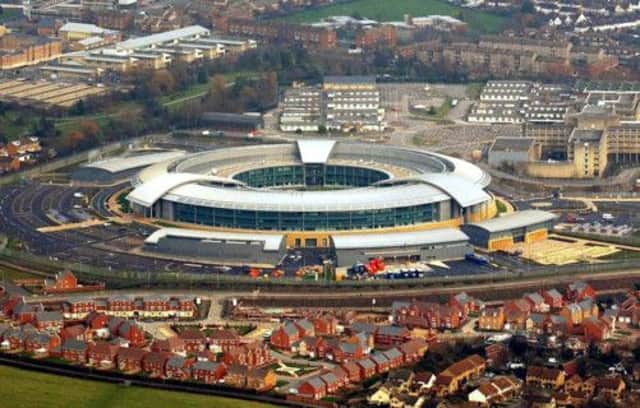MPs admit they knew how powerful GCHQ had become


Labour former counter- terrorism minister Hazel Blears said the Intelligence and Security Committee (ISC) was fully aware of “what they were doing in terms of being able to collect information”.
Her admission came after Britain’s spymasters warned of serious damage to national security that had arisen from the leaks about surveillance methods by former US intelligence operative Edward Snowden.
Advertisement
Hide AdAdvertisement
Hide AdIn an unprecedented public appearance on Thursday, Andrew Parker, director-general of MI5; Sir John Sawers, chief of MI6; and Sir Iain Lobban, the director of Government Communications Headquarters, insisted to the ISC that their organisations operated at all times within the framework of the law and did not engage in mass “snooping” on ordinary citizens.
Documents leaked by Mr Snowden revealed that GCHQ covertly accessed fibre-optic cables carrying internet and communications data, in an operation codenamed Tempora.
Former cabinet member Chris Huhne complained that senior government figures were kept in the dark about the existence of such techniques, but in what appears to be a first such admission, Ms Blears last night said the ISC did have a “broad understanding” of what GCHQ’s capabilities were.
Ms Blears, a member of the ISC, said: “We didn’t know the names of these projects, and I’m sure the exact same situation applies in America. But in terms of broad capabilities, yes we did.
“We have been looking at them now for several years. We have been on several visits to GCHQ. We’ve had very, very confidential briefings about what the capabilities were and obviously we were satisfied that they were operating within our legal framework.
“They can collect that information but in order to go further and look at content or data they then have to have a target set of people of interest so the rest of the population are not people of interest.”
She denied that meant she had been aware the Communications Data Bill – dubbed the “snoopers charter” by critics and since shelved – had been a sham to legitimise existing activity.
It was a “completely separate issue”, she said.
Ms Blears said she had secured a guarantee at the ISC hearing from Sir Iain “that he wasn’t conducting any operations that weren’t covered by the British legal framework”.
Advertisement
Hide AdAdvertisement
Hide AdThe three spy chiefs warned the committee that terrorist groups around the world were now changing their methods of operation in direct response to the intelligence disclosures. The exposure of surveillance methods had left al-Qaeda “rubbing their hands with glee”, Sir John said, while Sir Iain revealed that since whistleblower Mr Snowden’s revelations had been made public, GCHQ had monitored terrorist groups discussing in “specific terms” how to avoid communications systems they now considered to be vulnerable.
Sir Iain said the leaks could help dangerous criminals and even paedophiles avoid detection and had put operations at risk.
He also insisted that GCHQ was not involved in the mass monitoring of communications by the public.
He said: “We do not spend our time listening to the telephone calls or reading the e-mails of the majority, the vast majority. That would not be proportionate, it would not be legal. We do not do it.”